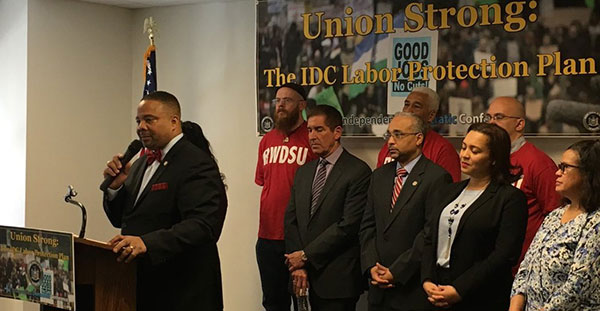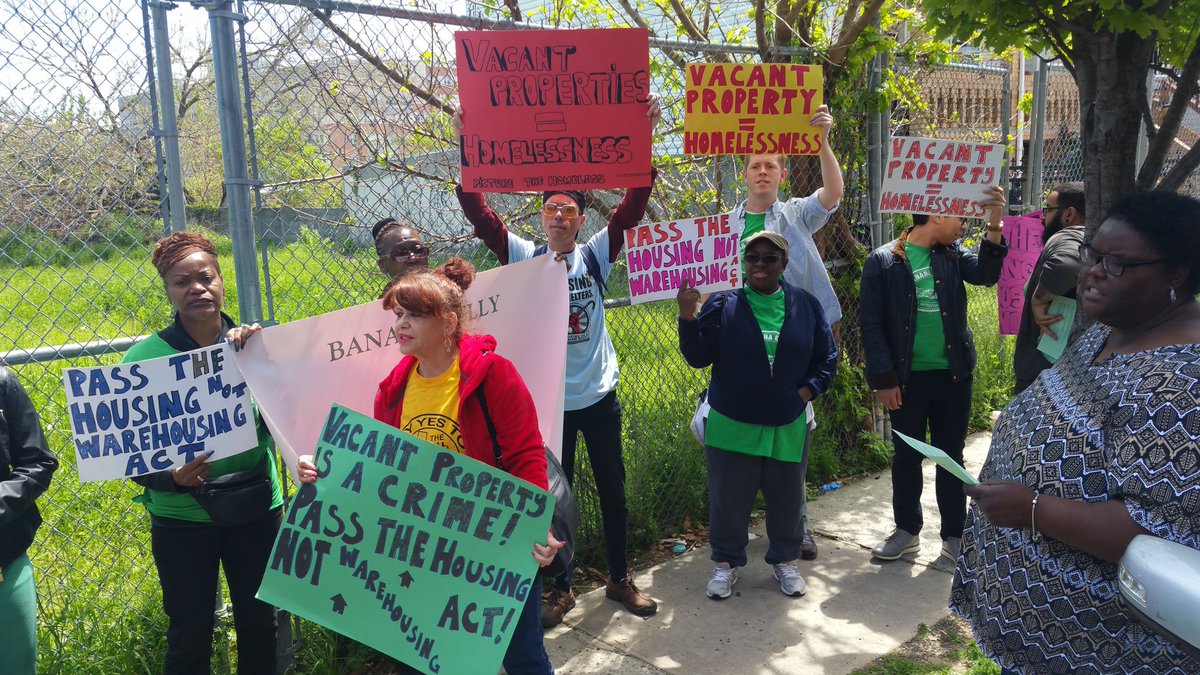Reinserting Morality Into Our Politics

JFK delivers a speech (via JFK Library)
On June 11,1963, President John F. Kennedy made a televised speech to the nation on civil rights. It moved me -- I was 19 years old at the time -- more than any political event up to that moment.
He said: "It ought to be possible...for every American to enjoy the privileges of being American without regard to his race or color. In short, every American ought to have the right to be treated as he would wish to be treated, as one would want his children to be treated. But this is not the case.”
"We are confronted primarily with a moral issue,” JFK said. “It is as old as the scriptures and is as clear as the American Constitution."
Later in the speech, he made the morality point again. "We face, therefore, a moral crisis as a country and as a people.”
“It cannot," he added, "be met by repressive police action."
Perhaps because of my religious education -- 12 years of Catholic schooling -- the president stressing the morality of the matter moved me deeply. No stronger case could be made for generally doing the right thing, or for, specifically, passing the legislation that Kennedy presented to address our moral problem.
For Kennedy "moral issue" was not a reference to the "family values" espoused -- up until recently, at least -- mainly by right-wingers upset with the flouting of conservative sexual and marital mores. He referred to fundamental religious and humanistic tenets that we as a society recognize: the common dignity of all people -- as in "all men are created equal" -- and that we have a great responsibility to provide for people’s well-being and to protect them from harm.
Recently, as I do my social and racial justice work -- which included a mayoral run earlier this year aimed to pushing these conversations to the fore -- I think more about Kennedy's remarks and his appeal to the American people, the case he made that we must reject the institutionalized racism in our country because it is immoral, contrary to our nation's founding principles. Not because it is wasteful, expensive, ineffective, but because it is fundamentally wrong either to inflict hardship on our fellow citizens or to ignore their plight caused by society's abuse or neglect.
Starkly racially-biased practices and realities are all too rife and ripe now in our city and country. They are similar to and different from the concerns that JFK and many other Americans in the ‘60s were concerned about and fought against.
For example, today in New York City, people of color are nine times more likely than whites to be arrested for marijuana possession, though research shows that white people use and sell the drug in equal or greater proportion to African-Americans or Latinos; black people make up about 25% of the city's population, but over 50% of felony arrests; more than 90% of the people incarcerated on Rikers Island are New Yorkers of color.
Racial discrimination in our city extends beyond our criminal justice system: 98% of homeless families are African-American or Latino; black and Latino children make up about 70% of our public school system's 1.1 million students, and research shows that the system's most dilapidated, poorly-performing schools almost entirely "serve" youth of color; meanwhile the 15% of the system's students who are white mainly attend the best-performing schools.
It came home to me while I ran for mayor and studied possible solutions to the city’s seemingly intractable problems that better remedies are available than are being applied or even discussed, but that out of fear of political risk or the expense involved, no mainstream politician comes forward to propose them. No government policy-maker issues dramatic, pointed challenges to our city's or the nation's citizens that we have a moral obligation, whatever the risks or costs, to rid our society of racist practices and realities.
For example, the city should change its response to mentally ill people in the community: send mental health professionals, rather than cops. Save lives rather than endanger them. The city must end "broken windows" policing tactics and focus policing on what we see cops do on TV shows: apprehending persons who do serious harm to the community. The city should commit to providing the 1.1 million children in our schools with small class sizes, which research and common-sense tell us improve academic outcomes for children across race and class lines. The city must commit to building affordable housing units poor people in the neighborhoods where the housing is provided can afford. Remove profit-making companies from the program and rely on community-based groups with track records in building & managing apartments.
Wrapping up, Kennedy said: "They [African-Americans] are not yet freed from the bonds of injustice. They are not freed from social and economic oppression...And this nation, for all its hopes and boasts, will not be fully free until all its citizens are free."
That should still be our goal, our moral imperative. Yet is there any current mainstream leader -- a political heading JFK falls under -- who will lead us there or even utter the words? It is unimaginable, for instance, that our president or New York mayor, despite his progressive claims, would play that role. It is then up to us, the activists and advocates for justice, all people who believe that moral values have a central place in our political life, to organize, to expose the terrible damaging effects that racism has on our fellow citizens and to press the case for the moral reckoning needed to create a fully inclusive society that is fair, safe, and equitable for all of us.
***
Bob Gangi is the director of the Police Reform Organizing Project (PROP). On Twitter @GangiFromPROP.
***
Have an op-ed idea or submission for Gotham Gazette? Email This email address is being protected from spambots. You need JavaScript enabled to view it.
The IDC Leaves Tenants Out in the Cold

IDC members (photo: @IDC4NY)
For years, dysfunction and real estate power brokers have prevented Albany from strengthening tenant protections in New York, and the result of these failures has been devastating for our neighborhoods: we continue to suffer from record homelessness and increasing displacement across the state.
The Independent Democratic Conference — a group of eight breakaway state senators elected as Democrats — has been a leading force of obstruction since 2011, partnering with Senate Republicans to shut out tenant voices in policy-making.
Recently, things began to look like they were changing in the Senate for the first time in years. The mainline Democrats and the IDC took up serious discussion about how to unify the conference. During the course of negotiations, the IDC claimed that its focus is “policies, not politics,” and outlined a series of key priorities for the conference.
We were extremely disappointed to learn that strengthening tenant protections was not one of them — especially since several members of the conference have both privately and publicly stated to us that this would be their top issue in 2018.
We are tenants and we are constituents of three IDC members: Senators Marisol Alcantara, Jose Peralta, and Jesse Hamilton. Joined together, these State Senators have the highest concentration of rent-regulated units in New York City.
We are fighting every day to be able to stay in our homes. Our neighborhoods are facing gentrification, and our landlords know loopholes in the rent laws mean they can raise our rents to market rate as soon as we leave. As a result, we face harassment, reduced services, and deplorable living conditions – all in an attempt to get us out of our homes. We have called on our state-level elected leaders to prioritize strengthening the rent laws through closing two major loopholes: the 20% eviction bonus and preferential rent. Our communities are experiencing increased rents, speculative landlords, and mass gentrification.
Over and over, Senators Alcantara, Hamilton, and Peralta told us that the IDC is the best vehicle to meet so-called progressive priorities. After serious pressure, they had committed to prioritizing these issues for the overwhelming number of tenants who live in their districts.
But once it came time to deliver, these senators and the IDC once again proved that they are the conference of the real estate industry. This is devastating for the tenants who are suffering in their districts daily because of laws that favor landlords.
In Peralta’s district, families at LeFrak City are sacrificing their savings, pulling their kids out of after-school programs, getting second jobs, and moving into smaller cramped apartments just to make ends meet. Many of us are seeing large rent hikes. At the end of every month, moving trucks haul the belongings of yet another family that has lost its apartment due to the preferential rent scam that Senator Peralta could fix next year.
In Brooklyn, just a few weeks ago, Senator Hamilton joined the Flatbush Tenants Coalition to tell the story of an 85-year-old grandmother recently evicted and now forced to live with friends on their couches, with her belongings in storage. Housing court in Brooklyn often has lines stretched around the block because the state ludicrously rewards landlords for evictions by allowing management to collect a 20% increase in rent — an eviction bonus.
The eviction bonus is the largest contributor to rent increases in rent-stabilized apartments. It doesn’t matter if the tenant moved out willingly or because the landlord refused to provide basic services to keep the apartment livable. The landlord can take that 20% increase, even if it raises the rent above market value.
Preferential rent is a bait-and-switch scam to get tenants out and collect the 20% eviction bonus. When a tenant first moves into an apartment, the landlord offers them a “discounted” rent. But when the lease is up, tenants can see increases of hundreds of dollars on their monthly rent.
This is simply a tactic used to get the eviction bonus and keep rents skyrocketing.
Preferential rents are causing tenants in Alcantara’s district to face potential increases of $1,000 or more when their lease expires, causing tenants to move and disrupting communities.
To be very clear, this can be changed through legislation in Albany.
Senators Alcantara, Hamilton, and Peralta could help change this next year. They have spent the past years and months promising tenants in their districts that this is a top priority. Alcantara and Peralta went as far as publishing their promises in an op-ed. But we have since seen that like so many things with IDC senators, these promises ring hollow, as the IDC did not list rent regulations as a priority area in its negotiations to realign with mainline Democrats.
There are only a few months left for the members of the IDC to deliver for tenants. If they fail to do so, we will remember in September.
***
Aisha Gomez is a resident of LeFrak City in Senator Jose Peralta’s district in Queens
Sherryann Bain is a resident of Flatbush in Senator Jesse Hamilton’s district in Brooklyn
Lauren Nye is a resident of Washington Heights in Senator Marisol Alcantara’s district in Manhattan
***
Have an op-ed idea or submission for Gotham Gazette? Email This email address is being protected from spambots. You need JavaScript enabled to view it.
Federal Tax Reform Could Turn City’s Housing Crisis into a Humanitarian Disaster

protesting unused vacant property (via @pthny)
In New York City, the demand for affordable housing far exceeds supply. Seventy percent of the city’s homeless shelter residents are families. Families who should be in homes.
Now, as the United States House of Representatives and Senate look to the conference committee to reconcile their respective tax reform bills, the housing crisis that began in the 1980s will become a catastrophe unless we, the people, intervene.
On paper, both the House and Senate plans retain the Low Income Housing Tax Credit (LIHTC) — which funds 90 percent of the nation’s affordable housing developments. However, the House tax bill eliminates tax-exempt private activity bonds (PABs) that fund half of all LIHTC projects.
Although the Senate bill retains PABs, both bills cut the corporate tax rate from 35 percent to 20 percent, dramatically reducing the value of tax credits that fund the remainder of LIHTC projects.
Also included in the Senate bill is an amendment that imposes what amounts to an international alternative minimum tax on any corporation with significant foreign operations. As a result, some large corporate investors might be deterred from claiming the LIHTC.
No matter how the reconciliation pans out, it is clear that, if passed, federal tax reform will devastate more than a million low-income New Yorkers searching for homes. And this isn’t the first federal policy to squeeze out affordable housing.
Under President Reagan, government spending on subsidized housing was slashed from $26 billion to $8 billion, contributing to a dramatic spike in homelessness. As a private sector solution, Reagan signed the LIHTC into law in 1986 to counterbalance the cuts to direct federal spending.
LIHTC’s market-based answer to affordable housing was successful enough that subsequent administrations maintained the program while continuing to whittle away at Housing and Urban Development (HUD) funds. LIHTC became the best — or rather, only — hope for Americans in need. But in cities like New York, LIHTC wasn’t enough to mitigate the surge and suffering of homelessness.
Although LIHTC helped develop or preserve approximately 122,000 affordable properties in New York City from 1994 to 2014, the city still endured a net loss of 150,000 rent stabilized apartments, leaving tens of thousands of New Yorkers with nowhere to go but the street or a shelter.
Mayor Bill de Blasio responded to this crisis with a pledge to add 100,000 affordable units by 2020. But experts at Novogradac & Company estimate that, if the House tax bill passes, that number could fall by two thirds.
Even if PABs are retained in the reconciled bill, the corporate tax rate reduction alone will result in the loss of around 300,000 affordable units nationally.
By squeezing the funding pipeline for affordable housing tighter than ever before, both bills crush the supply of affordable housing and the low-income families that rely on it.
This cannot happen — not on our watch, not in our city, and not in our country. This isn’t a partisan issue, it’s a moral one. We have a duty, to our city and our neighbors, to speak out against any provision that would threaten the supply of affordable housing at this most critical time in our country’s history.
Although the House and Senate have approved their respective bills, the final version has yet to be agreed upon. Now is the time to urge our representatives to reject any final bill that removes the tax-exempt status of PABs and cuts the corporate tax rate.
***
George McDonald is founder and president of The Doe Fund. On Twitter at @GeorgeTMcDonald and @TheDoeFund.
***
Have an op-ed idea or submission for Gotham Gazette? Email This email address is being protected from spambots. You need JavaScript enabled to view it.




